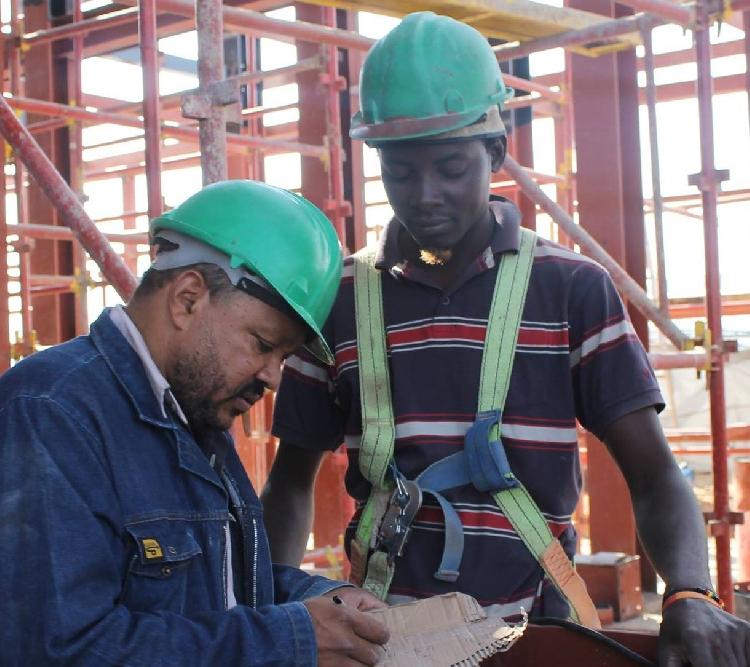Africa-Press – Namibia. MORE than 14 500 workers were retrenched between 1 January 2020 and 30 September 2021 due to the struggling Namibian economy and the Covid-19 pandemic.
This is according to the latest employment figures in Namibia, released by the Ministry of Labour, Industrial Relations and Employment Creation upon The Namibian’s request this week.
The first Covid-19 cases hit Namibian shores in March last year, causing the entire country to go into lockdown. Many businesses either closed down or were forced to let some of their workers go.
Acting executive director of labour, industrial relations and employment creation Lydia Indombo says a total of 14 563 people lost their jobs during this time.
Of this figure, 11 654 people lost their jobs due to economic reasons and the closure or discontinuation of businesses, while 2 909 job losses were due to Covid-19.
Most workers were retrenched last year, whereas 2 325 employees were retrenched between 1 January and 30 June this year. During the third wave of Covid-19 infections, the ministry recorded no retrenchments.
Meanwhile, economic indicators showed that the domestic economy slowed down, compared to last year during the same period. Indombo says the hospitality and tourism sector was hard hit, with 4 305 employees retrenched – the highest figure of all sectors over 20 months.
The retail and wholesale sector and the mining sector together let go of 3 193 employees. The construction and manufacturing sectors collectively retrenched 1 286 workers. The transport and storage, as well as agriculture, forestry and fishing sectors sent home 1 133 employers.
Despite these statistics, the Bank of Namibia has indicated that during the second quarter gross domestic product (GDP) increased due to growth in hotels and restaurants, wholesale and retail trade, and fishing, among others.
There was, however, a slowdown in economic activity in the mining, agriculture, manufacturing, construction, tourism, transport, and storage sectors. Earlier this year, the central bank estimated 2020’s real GDP to have contracted by 7,3%.
This comes at a time when 770 000 Namibians depend on social grants monthly. Labour expert Herbert Jauch previously said the labour ministry’s retrenchment figures are not a true reflection of Covid-19’s effect on the Namibian economy.
Jauch said there is a high possibility that these figures omit jobs lost in the informal sector, which accounts for about 60% of the total labour force.
He estimated that the total number of job losses for last year could be between 40 000 and 60 000. “We have an obligation to track statistics in the informal sector, which accommodates most of the country’s workers,” Jauch said.
According to a study conducted by the United Nations Development Programme, at least 51,9% of the working population in Namibia earn their livelihoods in the informal economy. The pandemic has pushed the informal sector further back into survival mode, relative poverty, and unemployment, the study showed.
“Other ways the pandemic has affected business operations include reduced opportunities to meet with customers due to business closures, limited access to markets, and physical distancing measures,” the report stated.
The Namibia Statistics Agency last released employment statistics in 2018. The NSA hopes the census they will embark on in August 2022 would have a labour component, which would be expected to provide more information on employment.
NSA spokesperson Iipumbu Sakaria says Covid-19 has limited the agency’s ability to collect data face to face, and that they had to use alternative ways of gathering information.
“As part of this new way of doing things, the NSA has worked on the Covid household tracker survey, through which the agency collected data through telephonic interviews from selected households. The NSA is about to launch the report of this survey,” he says.
REMEDIES President Hage Geingob in June appointed a committee comprising business people and corporate leaders to find ways to rescue businesses in financial distress, and to preserve jobs amid the Covid-19 pandemic.
The business rescue task force is expected to release a preliminary report on Friday. The committee’s responsibilities are to review business and insolvency legislation, laws, regulations and policies, and to make recommendations for amendments to these laws and regulations to rescue businesses.
Furthermore, the Popular Democratic Movement (PDM) has suggested that Geingob declare a state of emergency due to youth unemployment. Inna Hengari, PDM member of parliament, recently said youth unemployment, which stands at 46%, is a national crisis.
“Youth unemployment in the country is more than twice that among adults. The youth labour force comprises 576 000 young people. Of this number, 265 770 are unemployed, roaming the streets without a job,” she said.
By the end of this year, Namibia is expected to reach a staggering youth unemployment rate of 50,3%. “More concerning is that the highest qualification some 229 259, or 31,6% of the labour force has obtained, is a Junior Secondary Certificate, or Grade 10.
“Those with higher qualifications account for a mere 93 998 in the labour force,” Hengari said. She said the motion seeks to discuss, debate and agree on long-term and short-term interventions to resolve the crisis.
For More News And Analysis About Namibia Follow Africa-Press






